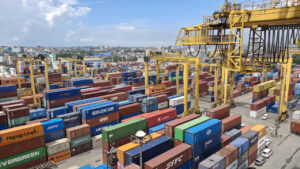The International Maritime Organization (IMO) has reported that Lebanon’s ability to tackle oil spills received a significant boost through a virtual IMO training event.
The training focused on the critical importance of rapid response to oil pollution incidents.
Held from 13 to 15 August, the OPRC Level 3 course brought together 21 senior managers and administrators who are key to Lebanon’s oil spill response efforts.
Through interactive online lectures, exercises, and discussions, participants honed their decision-making skills, emphasizing the need for quick action to minimise the impact of any potential spill.
The training highlighted the importance of robust cooperation, not only within Lebanon but also with neighbouring countries and the international community.
READ: IMO rolls out the maritime single window in the Caribbean
Key topics included understanding roles and responsibilities before and during an incident, navigating relevant regulations and conventions, and addressing liability and compensation issues.
The group reviewed the current status of Lebanon’s National Oil Spill Contingency Plan (NOSCP), exploring ways to further enhance the country’s preparedness.
The course was organised by the Regional Marine Pollution Emergency Response Centre for the Mediterranean Sea (REMPEC), through IMO’s Integrated Technical Cooperation Programme (ITCP).
More recently, the IMO launched a new toolkit to help the global maritime industry respond better to “insider threats”.








